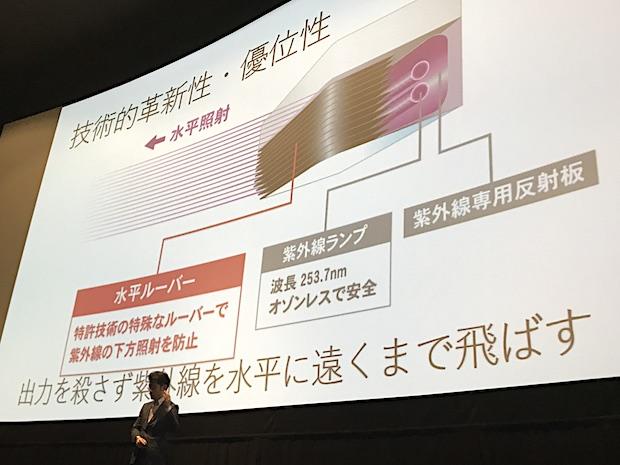William Nakulski is an entrepreneur and computer science expert with an interest in AI and software.
What does it mean to be human? The answer, like humanity, is constantly changing and evolving with humanity and over time. But one essential element that has defined humans for centuries is that they cannot escape death. Everyone gets sick and dies. But advanced technologies like AI may be able to change that, if expert intelligence succeeds.
With the advent of penicillin, it has become possible to sequence the genome of the disease, and recently he discovered CRISPR, a long way to reduce and eradicate biological disease over the past century through these milestones. I have walked. And now, with the advent of computers in the medical field, humankind is trying to push forward medical progress at once. Or it could be said that we are finally ending the death from illness.
Illness still exists, but technological progress is fast
Even in this digital age, illness remains the leading cause of death throughout the country and around the world. Heart disease and cancer are in second place by a small margin.
Believe it or not, this is a sign of progress. In contrast, Americans in 1900 died of modern-day treatable illnesses. For example, respiratory diseases such as tuberculosis, pneumonia and influenza, and gastrointestinal infections such as cholera and dysentery. Simply put, illnesses in modern civilization are not infectious diseases caused by pathogens such as the Spanish flu and bubonic plague, but are illnesses that originate from the lifestyle and modern habits that often occur.
Humans tend to think linearly, but technological progress tends to be exponential due to collaborative methods and technological leap. As economic prosperity increases worldwide, the above trends are spreading to other countries. Heart attacks and heart attacks dispel previous infections such as lower respiratory tract infections and diarrhea. As the country gets richer (and the infrastructure gets better), the threat targets clearly change. Even if we can escape the pain caused by the unsanitary environment, the negative aspects of affluent society await.

The above raises one interesting question. Can we really get rid of the disease, or can we just change the cause of death?
Computer-driven medicine
This marks a new milestone for us, the computer. Computers have long been used in the medical field (as early computers were used to track blood-borne illnesses in the 1960s), but new developments may revolutionize the field. unknown. The most promising development is machine learning, which is promised to help eliminate the illnesses we know.
So far, we've only stroked the top of the potential of machine learning in the medical field. Today, machine learning programs play a role in supplementing doctors. The software sifts and interprets large amounts of data, diagnosing the patient's current problems, creating patient profiles from past medical histories, and seamlessly predicting future conditions. Given the sheer volume of data generated by research in the medical field (a healthcare network estimated in 2003 that it would take 30 years for humans to revisit all existing randomized trials). It is very promising that computers can scrape off excess data, analyze it, and collect patient data.
Deep learning
Machine learning capabilities are still developing. An improved version called deep learning is a program that imitates the structure of the human brain itself, and researchers are conducting promising experiments using it. Deep learning programs are composed of overlapping layers of algorithms. The input received by one layer is transmitted to the next layer, and each subsequent layer performs further processing on the input. With this intricate system, deep learning can easily recognize patterns and want extremely high levels of processing that are even higher than what a typical machine learning program has shown us so far. ..
With this processing power, it may eventually be possible to start a countdown to eradicate the disease. Well-known for producing graphics processing equipment, his Nvidia is a potential leader in deep learning. It may seem surprising, but as the developers make it clear, the nature of the GPU makes it ideal for deep learning. A GPU has thousands of cores to easily execute complex programs, as opposed to a typical CPU with eight cores (computer chips). With this unexpected crossover, he says Nvidia is now applying his expertise in deep learning to medicine. Its stimulating applications include identifying genetic factors associated with neuropathy and using algorithms to predict patient prognosis (and constantly learning failure and success in those processes). Is.
Adaptable and self-sustaining traits, the greatest advantage of deep learning in the medical field is right there. Deep learning algorithms, like humans, can be built and evolved on the basis of acquired knowledge. In fact, research suggests that deep learning can exceed human capabilities in a variety of application areas. Deep learning automates tasks that were once only possible for professionals with medical imaging, with a much lower rate of inaccuracies. In fact, some deep learning teams have used their programs to determine skin cancer cells using only patient photographs as clues, demonstrating the great power of the algorithm.
This technology has been built up by cutting-edge, advanced institutions that seek to upset our paradigm for illness. For example, the Microsoft Biological Computational Laboratory hosts a wide variety of exciting processes. Perhaps the most dramatic thing is that we can create a model that imitates a biological system and predict the results. At the intersection of machine learning, mathematics and biology, Microsoft's lab hopes to one day be able to understand and control cell behavior and treat illness through programming.
This is just the tip of the iceberg. At the new USC Michelson Center for Convergent Bioscience, AI experts like Fei Sha will apply machine learning to health and life sciences to identify and treat the genetic factors of diseases such as cancer. We are trying to develop a very effective and precise treatment method for.
The future is here now
What an exciting time! Computer science, which was nothing more than a list of 0s and 1s, is about to revolutionize health and wellness in ways that no one could have predicted. Technology has continued to change the answer to the question of what it means to be human. And with the advent of intelligent machines, the line that separates the body from the computer has become more delicate than ever. The implications are extraordinarily large.
Imagine that the day may come when everyone has the equivalent of her SD card or her own genetic information, and doctors print out internal organs and limbs based on patient-specific information. .. In addition, a large amount of research on AI computers may be done by collecting and learning data at an exponential pace. It's true that AI is dangerous, as Stephen Hawking warns, but there are some astounding opportunities without even trying to get close to the dangerous territory.
Even if it is achievable, there is no doubt that there will be obstacles to reaching a paradise free from illness. It can also result in overpopulation, imbalances, and numerous ethical challenges. But computer science is at least redefining humanity, and will continue to redefine it, while AI will open the door to mainstream medicine. In this regard, the answer to the question of what it really means to be human may be determined not by the inevitability of death, but rather by our amazing ability to survive death. not.
[Via VentureBeat] @VentureBeat
[Original]
BRIDGE Members
BRIDGE operates a membership system "BRIDGE Members". The member community "BRIDGE Tokyo" provides a place where startups and readers can connect through tech news, trend information summarization, Discord, events, and so on. Registration is free.Free member registration






![[New Toyota Voxy (90 series)] Amplifies the characteristics of the aero body! A design that further enhances the power of the front mask! #Works direct custom deep layer 001](https://website-google-hk.oss-cn-hongkong.aliyuncs.com/drawing/article_results_9/2022/3/25/01568e2fbf021c0eaf7d013507c850a4_0.jpeg)

![[Toyota Noah / Voxy new model] Modellista releases various customized parts ... Actual vehicle exhibited at Tokyo Auto Salon](https://website-google-hk.oss-cn-hongkong.aliyuncs.com/drawing/article_results_9/2022/3/25/8268612c1e5941e62d3dfd07f8991b2f_0.jpeg)
